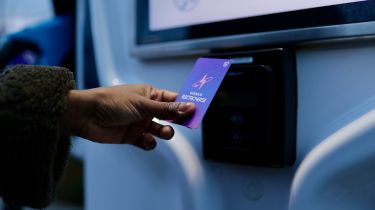Cheap EV charging comes to public chargepoints via new ‘Plunge Pricing’ app
Octopus’ ‘Plunge Pricing’ events promise to save electric car drivers an average of £6.50 per charge

Drivers can now access cheaper public EV charging rates whenever there’s excess to green energy available on the grid, all via an app on their phones.
Octopus Energy’s Electroverse app, which is available for both iPhone and Android users, has now launched the first of its new ‘Plunge Pricing’ events which aims to provide users with reduced charging rates and save them an average of £6.50 per top up.
The energy firm, which specialises in utilising renewable sources of electricity, says it plans to roll out a number of these Plunge Pricing events throughout the remainder of 2024, claiming it could save drivers as much as £250 over the course of the year.
These lower charging rates, which range between 15 and 45 per cent cheaper per kilowatt-hour, are being offered at times where there is excess renewable energy being stored on the electricity grid – such as when it’s sunny (for solar power) or windy (wind power). The firm even says it’s possible that drivers may even be paid to charge up their cars if electricity wholesale prices go negative in the future.
While Octopus already introduced ‘plunge pricing’ (essentially smart tariffs) on its home tariffs all the way back in 2018, the Electroverse app allows EV drivers to access and pay for charging on many of the UK’s biggest networks, such as Ionity, Shell Recharge, Osprey and Instavolt. Octopus says this gives drivers access to “more than 700,000” EV chargers across the UK and the rest of Europe.
Boss of Electroverse, Matt Davies, said the scheme “isn’t your average discount – it’s revolutionising public charging and something that could never be done with petrol. We’re geared up to work with more charge point brands so we can bring this to even more people.”
This all comes after Octopus launched its ‘Power Pack’ vehicle-to-grid (V2G) tariff which supposedly gives owners access to ‘free’ EV charging at home, provided they plug-in their EV for a certain number of hours a week, in order to feed energy back to the grid when it’s most needed.
Click here for more information on the UK's electric car charging network...




